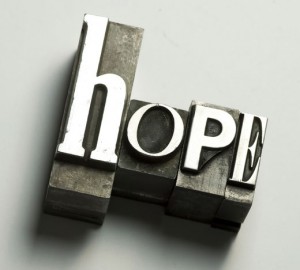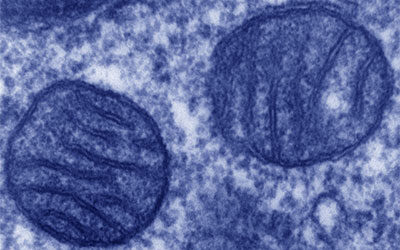 This past September, in the wake of the recent gay teen suicides, writer Dan Savage founded a project that has miraculously caught fire and has begun to sweep our nation. He has dubbed it the “It Gets Better Project“. His aim was to provide lesbian, gay, bisexual and transgender teens with hope for a better future, one where being who you are isn’t so excruciatingly painful, and where happiness isn’t hard to come by. People from across the country have come out to write and make videos to tell their stories and to share how despite the treacherous times that come with being an LGBT youth, and despite the hardship that comes with being part of the LGBT community, they have led successful lives and have found love, support and happiness.
This past September, in the wake of the recent gay teen suicides, writer Dan Savage founded a project that has miraculously caught fire and has begun to sweep our nation. He has dubbed it the “It Gets Better Project“. His aim was to provide lesbian, gay, bisexual and transgender teens with hope for a better future, one where being who you are isn’t so excruciatingly painful, and where happiness isn’t hard to come by. People from across the country have come out to write and make videos to tell their stories and to share how despite the treacherous times that come with being an LGBT youth, and despite the hardship that comes with being part of the LGBT community, they have led successful lives and have found love, support and happiness.
As I follow this project and whole heartedly support it as a straight alliance, a little voice has begun to speak up in the back of my mind. With each video that I watch, each celebrity that speaks out in support, the voice gets louder. I watch the LGBT community grow and the support for the community expand, and as I rejoice, I can’t help but think of the Lyme Disease community. My mind has become pre-occupied by the recent Late Stage Lyme suicides, and the little voice in the back of my mind has begun to shout:
 “Does it get better for us too?“
“Does it get better for us too?“
Sue Baiata. George Strobo. Jonalyn Strobo. Bryan Jacobson. Lindsay K.
These are the names of the individuals who took their lives in recent months after battling Late Stage Lyme Disease longer than they ever thought they could or would. No one answered that question for them, or handed them a sliver of hope when they started to lose grasp of their own. Out of respect for them and for their battle, I feel the need to speak out. I’ve always said that in order to overcome this horrid disease, one needs a village. The unfortunate reality is that at this point in time, most Lyme patients don’t have much more than a few family members or friends that care for them and the doctor that has diagnosed them. Many aren’t even that lucky.
Much like the doctors who were treating AIDs patients in the beginning of the AIDs epidemic, Chronic Lyme Physicians are under fire for what they believe and for how they treat. Not unlike AIDs patients once were, Lyme patients are mistreated, abused and neglected by most healthcare professionals. The disease is pushed aside, it’s the elephant in the room, and it’s the epidemic that no one wants to acknowledge. The disease is lacking in research, treatment options and treating physicians, and the lyme community lacks acknowledgement and support. Because of this and because of the roller coaster-like nature of the disease, Lyme patients remain ill for years, or even decades. As their world stops spinning and their lives are put on hold, the lives and worlds of their friends and family around them continue on and they are soon left to fight a relentless battle with just a few people by their side. Many face this battle alone.
There has been a trickle of celebrity support this past year, as actress Candice Accola stood up as an activist and a handful of well-known celebrities came together to film Lyme Disease PSAs. The Lyme Community was thrilled about this rare outreach and support, and we were eternally grateful for the compassion and the effort demonstrated by these benevolent celebrities.
But what about hope?
Dan Savage’s “It Gets Better” project was set into effect in hope to provide struggling members of the LGBT community with assurance that life does get easier. He hoped to be able to provide ridiculed, defeated LGBT youth with the ability to imagine a better future, in an effort to prevent future losses of precious lives. I think that in the aftermath of the Lyme Disease related suicides, the Lyme Community needs that to. I know that for us, due to lack of research, funding and treatment options, our futures are in question.
 There aren’t any certainties in our battle. There isn’t enough information out there to be sure what the outcome is truly going to be. Will I ever be clear of this disease? Will I achieve remission? Will I be on medication for the rest of my life? Will I be able to hold a full time job? Can I have children? Will my body ever truly function like it once did?
There aren’t any certainties in our battle. There isn’t enough information out there to be sure what the outcome is truly going to be. Will I ever be clear of this disease? Will I achieve remission? Will I be on medication for the rest of my life? Will I be able to hold a full time job? Can I have children? Will my body ever truly function like it once did?
I don’t know. There is something that I am sure of though. It gets better.
Things have been hard for me lately. I’m on a downward dip in this roller coaster we call Lyme. There have been days where I’ve found myself crawling to the bathroom again, where the physical hardship and feeling of defeat slightly outweigh my sense of hope. Deep down though, I still know that it gets better. I want others to hang on to that too. I’m never going to give up, and I don’t want to read about another fellow lyme patient who has thrown in the towel again either. So I’ve set out to make a list. A list of hope.
Late Stage Lyme Disease: It Gets Better.
1. You will find a doctor that that wants to, and knows how to, help you. I got sick at age 16. For 2 years I went in circles in a conventional HMO medical system where I was passed from doctor to doctor, each one either shrugged their shoulders or implied that somehow I could be causing the malfunction that was taking place inside my own body. The summer before my senior year in high school, I became so ill that I was hospitalized. My heart, digestive tract and liver all showed physical, incontestable evidence of being under dire distress. The doctors were alarmed by my physical condition and finally believed that I was afflicted with a physical illness, but still didn’t know what that illness was, nor did they have the desire to keep trying to figure it out. I was dubbed “chronically ill”, and they sent me home, despite the fact that I was 17 and weighed what I weighed in 5th grade, I couldn’t sleep laying down, I could barely stand up, my digestive system was at a standstill, my blood pressure was 70/40 and my liver enzymes had skyrocketed up into the 300s. By the grace of God, after a whole lot of hardship and physical decline, I ended up in the lap of a lyme literate physician. He wanted to help, but I was too ill and too complicated for the treatment tactics he knew how to execute. The phrase “you’re one of my sickest patients” became uncomfortably familiar to me, as I continued to decline to the point where I was unable to leave my house at all, shower, sit up properly in a chair, or often even rise from the couch.
Five years and five lyme literate practitioners later though, I am finally with a doctor who gives me hope. When I met him, he looked me in the eye and and said to me, “Believe it or not, I have seen patients even sicker than you are right now, and they are now getting better. You can be a functioning member of society again, and I can help you get there”. It’s been an uphill battle ever since he spoke those words to me, but he hasn’t given up, and neither have I.
You will find a doctor that both acknowledges the magnitude of your sickness and knows how to fix it. It may take an excruciatingly long time to find that doctor, but don’t give up looking. It had been so long that I had begun to think there wasn’t a doctor out there who could fix me, or who would be brave enough to try. I was wrong. I still may not be able to leave my house, and I still may be a physical mess, but I am sitting up in a chair and typing to you, and I have hope. Someone will hand you hope, too.
2. You will find a treatment that doesn’t just make you sicker. For me, ten days of flagyl equated to a ten day stay in the hospital. Three drops of olive leaf extract lead to a night in the E.R. A full month of Sporanox caused Multiple Chemical Sensitivity so severe that I am now unable to leave my house. Thousands of dollars have been spent on pills, potions and powders that now sit barely touched in my hall closet. I have shopping bags full of five years worth of bottles that have just one or two pills missing. I was the patient that couldn’t handle anything. The one who’s digestive tract would come to a screeching halt with one wrong move, the girl that would have seizure-like episodes or erratic vital signs just because one supplement tipped her teacart. I tried to remain hopeful through it all, through each widespread rash, gall bladder attack, skewed blood result, erratic blood pressure reading, or emergency room trip, but deep down I doubted that I’d ever be able to handle treatment. Eventually though, I found the doctor that was able to appease my doubts, and I decided to trust him, and I plunged into a treatment that I am proud to say that I am actually carrying out. It’s not by any means easy, but he found ways to help me make it through the treatment I require, and we discovered that there are things out there that my unstable body can tolerate.
I may have to go at snail speed, and I may have to take it one drop and one pill at a time, but I’m doing it. Last night I stood in the kitchen, as I poured liquid medication into a glass, and marveled at my dose. Three years ago I had tried this same medication and could only handle one drop at a time. I now take twenty drops at a time, and no one has to peel me off of the floor twenty minutes later.
3. You will meet others that understand. Yes, most of your friends will move on. You may receive balloons, get-well cards and well wishes for a couple of weeks after your initial diagnosis, but after a few years of being debilitated and continuing to be the missing person at holiday gatherings and social events, the person who’s too sick for visitors or long winded conversations on the telephone, friends move forward. They move forward while you’re stuck in place because it’s only natural, and undeniably inevitable. When old friends do check in with you once in a while, it’s hard to know what to talk about since your life is so drastically different from the “norm”. It’s hard to find a family member or a friend to vent to when you feel like you’re dying, or you’re experiencing symptoms or side effects that sound like they could be from a planet that no one from earth has ever visited. I promise though, that one day, you’ll find someone. You’ll be sitting in a waiting room, waiting to see your doctor, and someone will pull out your favorite brand of gluten free crackers, or you could be lounging in the I.V. room receiving an intravenous cocktail when you and the patient next to you both break out in the same purple rash. You’ll find people to bond with, and they’ll connect you with other people via email or some social networking website. Before you know it, you’ll find yourself in the midst of a web of support, and people who just “get it”.
At first I was hesitant to put myself out there. I thought that it was odd to connect to perfect strangers over the internet, and start divulging the details of my tumultuous life. Eventually though, I got lonely. I needed someone who understood what it was like to be a young adult and have to ask your Mom to help you get to the bathroom, or wash your hair in the sink. I needed someone to talk to who watched as much television as I did, or who I could swap allergen free recipes with or ideas on how to wrap yourself in a castor oil pack without getting the goo all over the couch. Once I let go of all pre-conceived notions, I found myself engulfed in a community full of the most creative, loving, witty, smart and supportive people that I had ever met, and they just happened to be fighting a fight similar to my own. If you find yourself fighting this same isolating battle, don’t be afraid to reach out.
You’ll find someone who, on a hard day, will sit online and chat with you until your doctor calls you back. You’ll find someone who will text you when they know you’re about to undergo a procedure or receive a treatment, just to tell you that when they did it, they survived. You’ll find yourself a group of friends who don’t think you’re crazy for drinking brownish-green vegetable juice every morning, and who love you and accept you despite the fact that you can’t leave the house without a mask on, and you can’t stand up for more than ten minutes at a time. You’ll receive cards from friends that know just what to say when things are bad, because they can actually fathom how bad it really is, and they know what “bad” really looks like. If you open yourself up to it, you will find support. You will find that even though you’ve been diagnosed with one of the loneliest diseases that exists, you are not alone.
—
I know it doesn’t sound like much. I’m not running miles or marathons. I don’t even leave my house. But it got better. And, it will keep getting better. One day I’ll visit the doctor and he’ll give me a positive report. One morning I’ll wake up and find that the medications that were causing heavy herxheimer reactions are now making me feel a little bit better. One day I’ll meet up with a few of these amazing girls that I’ve met online, and we’ll go to the beach. I may even meet a boy that sees me through my illness, and loves me despite my battle. Maybe I’ll even get married. And one day, my disease will make it onto the map and there will be adequate research done that will both save lives and improve the quality of the lives of those infected.
It’s as Buddha said, “Nothing is permanent”. I don’t know what my future holds, but I know that it won’t look the same as the present day does now. Things will get better. Sure, I will still face hardship. Yes, I don’t know in what shape or form. All I know is that things will improve. Whether it’s in a small way or an earth shattering way, they always do.
So, I challenge you. If you have a story of hope, extend yourself and share it. Sue Baiata, George Strobo, Jonalyn Strobo, Bryan Jacobson, and Lindsay are a few of the sufferers that could have used it. You may not know it, but by reaching out and opening your hand and heart to deliver a slice of hope and a drop of compassion, you may be saving a life.
I also challenge doctors, medical facilities, and healthcare practitioners not to give up on patients like me. Don’t turn us away. Don’t accuse us. Don’t abuse us. Don’t pass us around. Don’t send us packing because you can’t figure us out. Family members and friends of those who are affected by this illness, please don’t walk away because things “aren’t getting better”. Don’t turn your back because you don’t understand, and please don’t become impatient when we can’t meet your expectations or fit with the healthy lifestyle and ideations that you upkeep. I bet that Sue, George, Jonalyn, Bryan and Lindsay were not the first ones to give up in their battle. I bet someone gave up on them first.
Keep fighting. It gets better.










Information on the potential factor of neuropsychiatric lyme (provided one of our informed readers):
http://www.lymeinfo.net/neuropsych.html
http://www.mentalhealthandillness.com/lymeArticles.htm